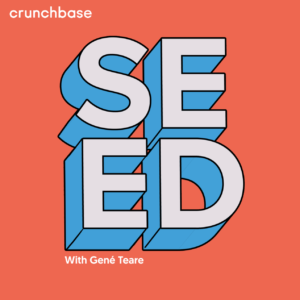 Editor’s Note: The following Q&A kicks off our new Seed Series where our own Gené Teare sits down with various players in the tech world to talk everything from diversity and innovation to the state of funding and anything in between. The below conversation has been edited for brevity and clarity.
Editor’s Note: The following Q&A kicks off our new Seed Series where our own Gené Teare sits down with various players in the tech world to talk everything from diversity and innovation to the state of funding and anything in between. The below conversation has been edited for brevity and clarity.
Today we talk with Jeff Clavier of Uncork Capital as part of our Seed Series. Jeff founded one of the earliest Micro VC funds in Silicon Valley. He covers a whole generation of seed investing. I met Jeff back in 2005 at his house when Bebo, a competing social network to Facebook, was still a thing. Jeff talks about the early days in seed investing back in 2004, the notable firms who were just starting out and going strong today, tech trends then and now, why hardware investing has slowed down, and why he has a plus fund.
Subscribe to the Crunchbase Daily
Gené: Jeff, you started one of the earliest funds in the micro VC space. Did you anticipate the wave of funds created since then?
Jeff: I had no idea. Back in 2004, I saw an opportunity to fund a number of great entrepreneurs, who were having a hard time finding seed investors. After three and a half years of angel investing full time, I decided to raise one of the first micro VC funds. At the time they were not called micro VC, but super angel funds, as there were no micro VC funds. Fund II was a $15 million fund and we were not sure if we would raise the next fund. It was very experimental. If you had told me there would be 650 micro VC funds, and over $10 billion raised by this class of managers I would not have believed it.
Gené: When you raised your first external fund around 2007, which was $15 million, there was no institutional seed. Were there just angel investors or friends and family at the time?
Jeff: First Round and True Ventures had raised their first fund. True Ventures and First Round had a team. I was a solo GP. Mike Maples (FLOODGATE) started around the same time. In 2008 and 2009 we were working together as a group of five to seven firms and syndicating deals. I remember when Fitbit raised a $2M seed round which was a big deal. That now would be considered a small seed.
Gené: Do you think there are too many seed funds and too much seed funding?
Jeff: I think this is a natural progression. We shared our playbook. We gave out the sense that it is easy to raise funds, and build a firm. Your job is to return cash 4 or 5 times. I have a hard time seeing all 600 firms being able to return capital. If you are in the right deals, you can do well.

Gené: You are investing out of Fund 5 which is $100M. At what point did you know you were going to be successful?
Jeff: When I invested Fund II, I would go for ownership and do seed, and pro rata in Series A and B. The challenge is that it takes a long time. We have had three IPOs after an average of 8.5 years. We felt like a legitimate firm after our first IPO, which was only recently in 2015.
Gené: In Crunchbase you have around 200 portfolio companies. What is your propensity for risk? If you have 100 investments how many can fail, how many return the money invested, how many return 3x how many return 10x? What’s the makeup if you had 100 companies?
Jeff: About 30 to 40 go bust, 30 to 40 return cash, and the final third return 4, 5 or 10x. Some companies will return the whole fund. Big exits are the power law of venture. Fitbit and SendGrid returned the fund once or twice. Those are the homeruns you need.
Gené: What innovation wave are you currently surfing?
Jeff: It was the beginning of social and start of the mobile revolution. I was known for Mint personal finance, Truveo was a video search engine before YouTube. There was a world before YouTube. This was about user generated content. My first investment in podcasting in 2006 was Loomia which is a directory of podcasts. Podcasting is this great market that has been around the corner for 12 years.
Gené: You’re investing in 15 startups a year with around a million in each investment. Are you co- investing or are you investing on your own?
Jeff: We always syndicate. That is a key principal for us. We try and surround our founders with smart investors. There is a group of 10 investors that we develop deep partnerships with. Our old friends at True Ventures, First Round. More recently we do a ton of deals with Eniac and Crosslink. We work with Zetta Venture Partners on SaaS opportunities. We also have a relationship with series A firms that we bring opportunities to.
To your question about ownership, we are trying to get 7 to 10 percent. If ever there’s another great investor who wants in, then we have to cut back a little bit to make it work. There are a ton of firms trying to attract founders who do not yet have a track record so they try to compete on speed and price. Valuations over the last year have gone up 10 percent to 12 percent in our own portfolio. For three years 8 million pre is our median. In the last 12 months, it has gone up to $9 million pre.
Gené: Does that impact your fund profitability?
Jeff: I think it’s too early to tell. We will know in eight years if it is a great fund. There is a potential of a performance hit. The average valuation for Fund II is $4M pre-money valuation and that was a successful fund. And we are looking at twice that for Fund V. Our focus in Fund V is ownership. Does it matter if we spend $1 million or $1.2 million for 10 percent of a company? However, if valuations continue rising, we will definitely get hit.
Gené: Let’s go back to what wave of tech you are riding. Back in 2004/2007 it was mobile social. What is the way of tech that you’re excited about today?
Jeff: On the broad platform I would say SaaS is getting everywhere. Whether it is horizontal platforms, or the application stack for mobile, any industry having vertical SaaS solutions that radically change the way they do business. Or disrupt software that was written back in the 80s and 90s. That is the core of Uncork’s strategy. 60 percent of Fund V will be SaaS, and B2B enterprise solutions. We still do a bit of consumer and marketplaces. We have slowed down our investments in hardware. Consumer hardware is hard to get financed.
Gené: Why is that?
Jeff: Investors have lost their appetite for hardware. Unless you were in Nest, Ring, Fitbit, Dropcam and a couple of others, you have lost a lot of money. Hardware is hard and burns a lot of cash. I hope that with the new generation we will see more investors come back. I hope we see more great investors like CrossLink for Series A, Foundry for Series B, but it is hard.
There is this new category of investment called Frontier Tech. Market adoption and consumer adoption is much further away than the other categories. Whether it is Artificial Intelligence, AR, VR, Robotics, Autonomy, Infrastructure; a lot of money has been poured into this meta-category. We have been pretty active. We have invested in Space Tech as a category. There is also a lot happening in Crypto and Blockchain. We have just completed an investment in a blockchain company.
Gené: I will ask one more question on funds before my final question. You are investing the hundred million fund and the plus fund at $50 million. Why is that set up as a separate structure? Why not just have one fund with $150 million and then do some pro rata?
Jeff: We had a debate with our LPs on this. The reason I decided to go for a split structure is because I like the discipline that a $100M fund gives us. You cannot go crazy. One trend we noticed is that we have concentrated our funds over time. We have Fund III with 55 investments, Fund IV with 42 investments and Fund V will probably end up with 36. Lower number of companies, larger investments per company. Having an opportunity fund allows us to say we will only invest in 10 to 12 companies but write much larger checks. Right now we have done $3 to $5 million per company, and we could invest 20 percent of the fund in one company.
Gené: Do your LPs want to invest directly or is that not their character?
Jeff: Everyone does in LP land. They all want co-investment rights. We have been clear there will be a few opportunities. 100K is available or a million there. The problem is that they need to invest quickly as the round is already coming together.
Gené: My final question. Can you name a couple of companies that you’re excited by that we should watch?
Jeff: First Eventbrite went public so congrats to them. Fund IV we invested in Molekule, a hardware company that makes air purification technology for allergy, asthma or respiratory disease. It is fast growing. Super excited about the product they have brought to market, which is life changing and has a huge potential market. When you think about pollution in India and China this is a big market.
Front is led by my friend Mathilde Collin, French founder, and a U.S .company. They have executed well. It is a chat inbox for teams. You can aggregate a bunch of email, text accounts and any communication into one single chat inbox where teams can collaborate and have way more efficient customer support.
Gené: Thank you, Jeff. I think we covered it.
Jeff: It is a super exciting market. It feels crazy some days. We are privileged to see the future through the eyes of entrepreneurs.
Crunchbase links – Uncork Capital Portfolio company hub
Illustration: Li-Anne Dias.

Stay up to date with recent funding rounds, acquisitions, and more with the Crunchbase Daily.



![Illustration of a guy watering plants with a blocked hose - Global [Dom Guzman]](https://news.crunchbase.com/wp-content/uploads/quarterly-global-3-300x168.jpg)
67.1K Followers